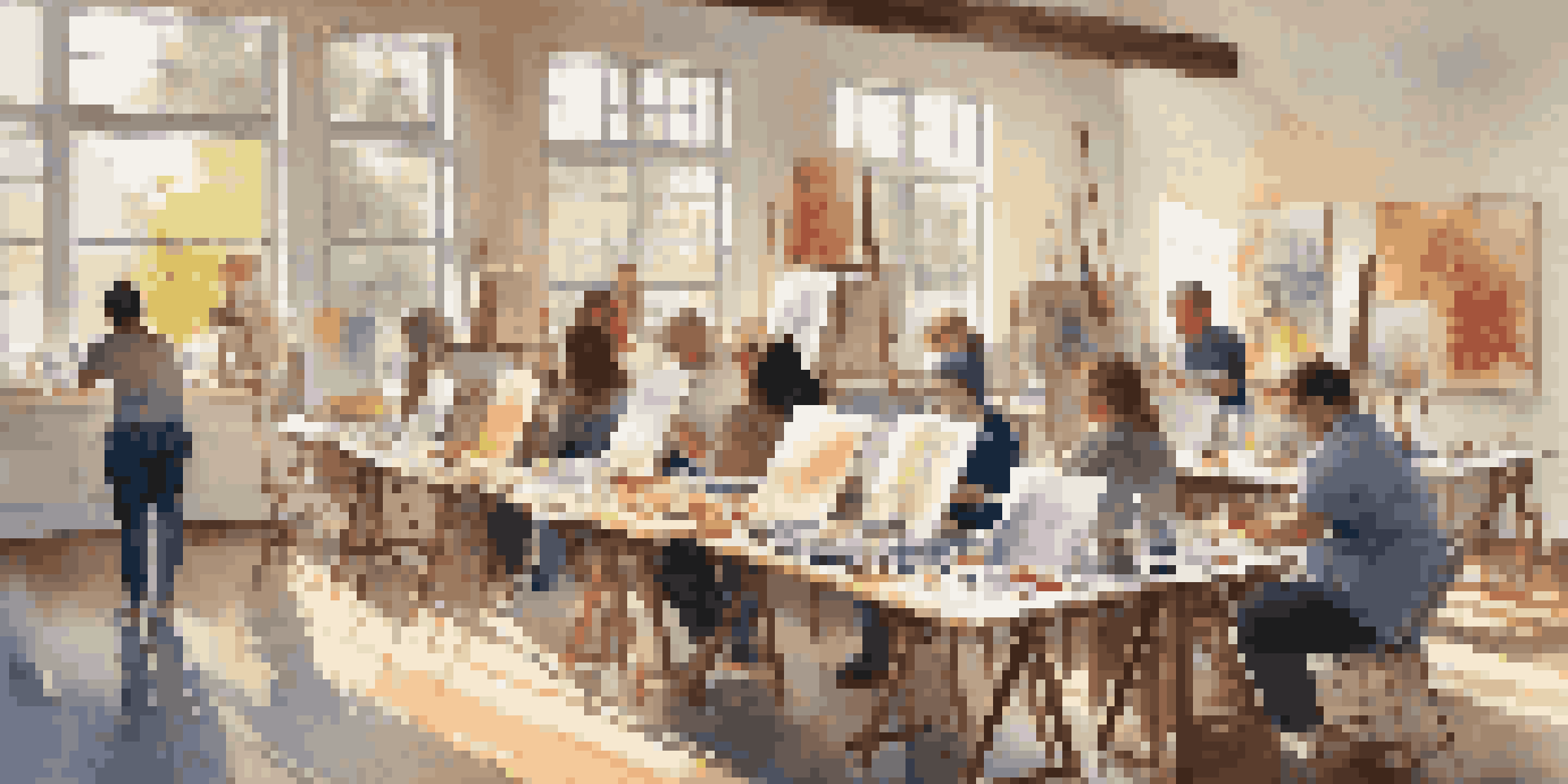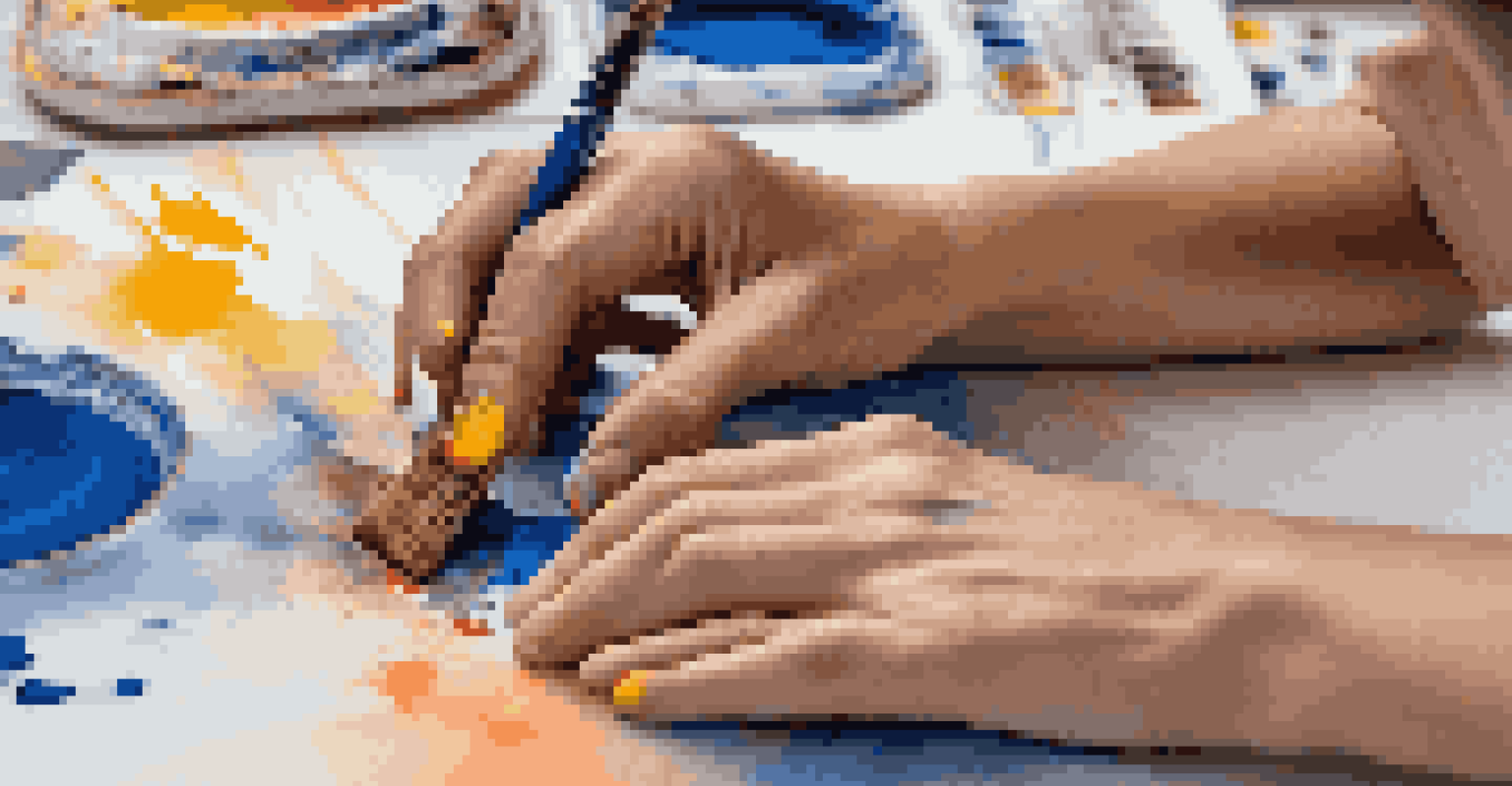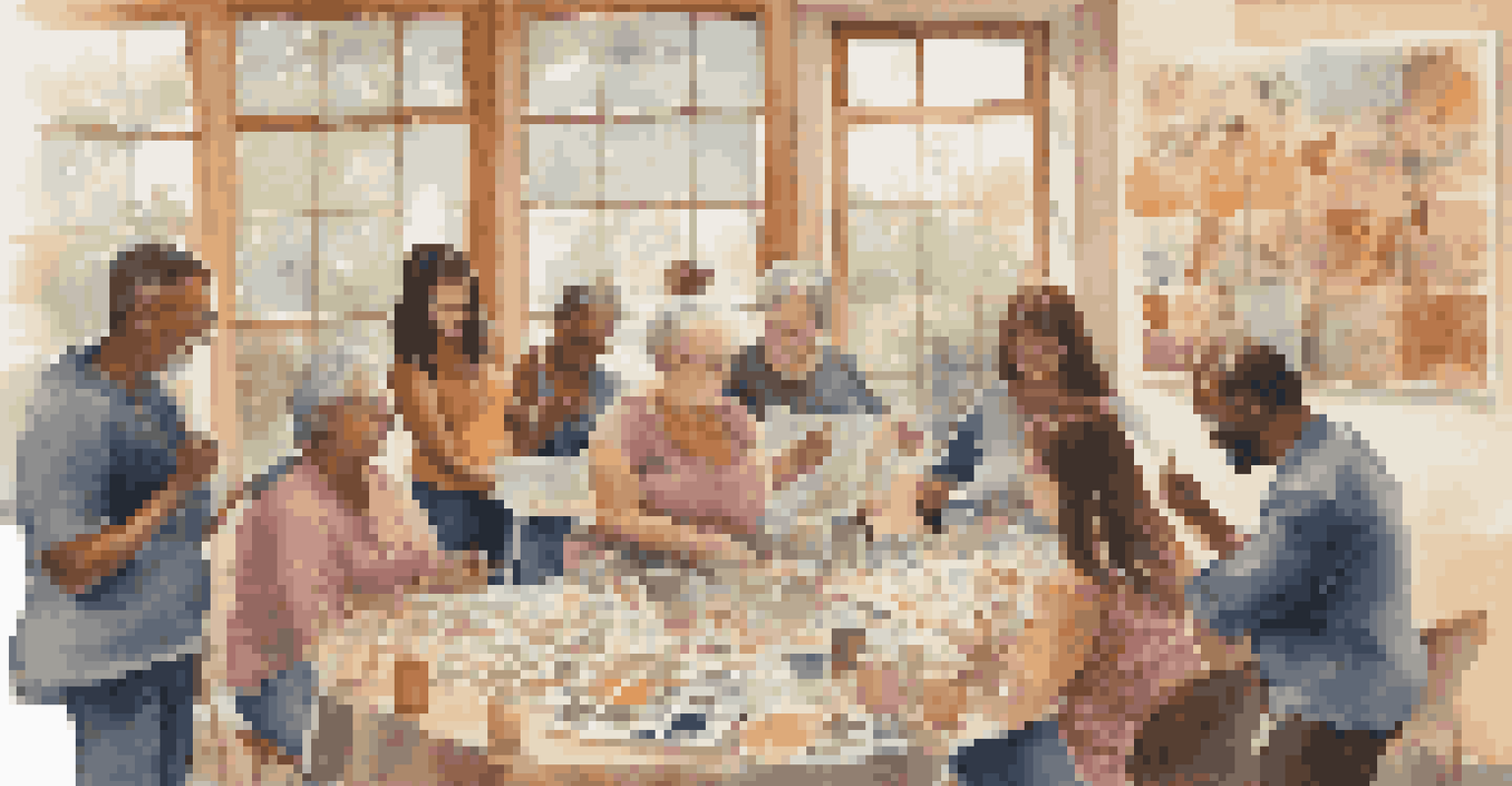The Impact of Art Workshops on Mental Health Recovery

Understanding Mental Health Recovery
Mental health recovery is a journey that varies for each individual. It often involves managing symptoms, fostering resilience, and enhancing quality of life. Recovery isn't just about treatment; it also encompasses personal growth and finding joy in everyday activities.
Art is the most beautiful of all lies; it is a form of truth that can heal and transform us.
Art workshops offer a unique avenue for individuals to express their feelings and experiences. By engaging in creative processes, participants can explore complex emotions in a safe environment. This artistic expression can lead to self-discovery and a deeper understanding of one's mental state.
Moreover, the act of creating art can be therapeutic. It allows individuals to channel their thoughts and feelings, providing an emotional release. This can be particularly helpful for those who may struggle to articulate their feelings verbally.
The Therapeutic Power of Creativity
Creativity has a profound impact on mental well-being. Engaging in creative activities can stimulate the brain, leading to the release of endorphins—our body's natural mood lifters. This boost can improve overall mood and reduce feelings of anxiety and depression.

Art workshops encourage participants to explore different mediums, whether it's painting, drawing, or sculpting. Each medium offers a distinctive way to express emotions and thoughts, allowing attendees to find the best fit for their personal experiences. For many, this exploration becomes a source of empowerment.
Art Workshops Enhance Mental Recovery
Engaging in art workshops fosters personal growth and emotional expression, playing a crucial role in mental health recovery.
Furthermore, the process of creating art can serve as a mindfulness practice. As individuals focus on their artwork, they often enter a state of flow, where worries fade away. This mindfulness aspect can help reduce stress and promote a sense of peace.
Building Community Through Shared Experiences
Art workshops foster a sense of community among participants. When individuals come together to create, they share their stories and struggles, often finding common ground. This shared experience can alleviate feelings of isolation, which is prevalent among those dealing with mental health issues.
Creativity takes courage.
The supportive atmosphere in art workshops encourages open dialogue and connection. Participants often bond over their creative journeys, forming friendships that extend beyond the workshop. These connections can be invaluable in the recovery process, providing a network of support.
Additionally, being part of a community can enhance motivation. When participants see others engaging in the creative process, it can inspire them to push through their own barriers. This collective energy can amplify individual healing and growth.
Developing Coping Strategies Through Art
Art workshops can equip participants with valuable coping strategies. By expressing their emotions through art, individuals learn to navigate their feelings in healthier ways. This creative outlet can serve as a tool for managing stress and anxiety outside the workshop setting.
For instance, someone might use painting as a way to process grief or sadness. By channeling these feelings into their art, they can gain insights and find closure. Over time, these coping strategies become ingrained, aiding in long-term recovery.
Creativity Boosts Well-Being
Participating in creative activities releases endorphins and promotes mindfulness, significantly improving mood and reducing anxiety.
Moreover, creating art encourages problem-solving skills. Participants learn to overcome challenges in their artwork, which can translate to tackling obstacles in their daily lives. This newfound resilience is a powerful asset in the recovery journey.
Enhancing Self-Esteem and Confidence
Participating in art workshops can significantly boost self-esteem and confidence. As individuals create and share their art, they receive positive feedback, which reinforces their sense of worth. This validation is crucial for those who may struggle with self-criticism or low self-image.
Completing an art project can also instill a sense of accomplishment. Each finished piece serves as a tangible representation of effort and creativity, reminding participants of their abilities. This newfound confidence can extend beyond the studio and into other areas of life.
Additionally, showcasing artwork in exhibitions allows participants to celebrate their creativity publicly. This acknowledgment can be a transformative experience, affirming their journey and progress in mental health recovery.
Art as a Means of Storytelling
Art serves as a powerful medium for storytelling, allowing individuals to narrate their experiences visually. This form of expression can be particularly beneficial for those who find it challenging to articulate their thoughts verbally. Through art, they can convey complex narratives and emotions that might otherwise remain hidden.
In workshops, participants often create pieces that reflect their personal journeys. These artworks become a visual diary, showcasing triumphs, struggles, and healing. Sharing these stories not only fosters connection but also creates a sense of validation and understanding among participants.
Community Support Through Sharing
Art workshops create a supportive community where participants share experiences, alleviating feelings of isolation and enhancing motivation.
Moreover, storytelling through art can be a cathartic experience. By externalizing their emotions, individuals may find relief and clarity, helping them to process their experiences. This therapeutic aspect of storytelling is a cornerstone of mental health recovery.
Conclusion: The Lasting Impact of Art Workshops
The impact of art workshops on mental health recovery is profound and multifaceted. They provide a unique blend of creativity, community, and coping strategies that can significantly enhance well-being. For many, these workshops become a crucial part of their recovery journey.
As individuals explore their creativity, they not only express their emotions but also build resilience and confidence. The skills and connections formed in these workshops can lead to lasting positive changes in their lives.

Ultimately, the transformative power of art reminds us that healing can take many forms. By embracing creativity, individuals can pave their own paths toward recovery and fulfillment.